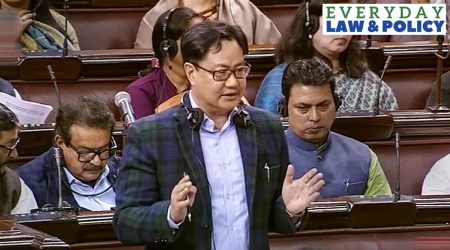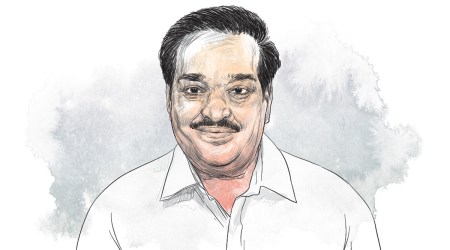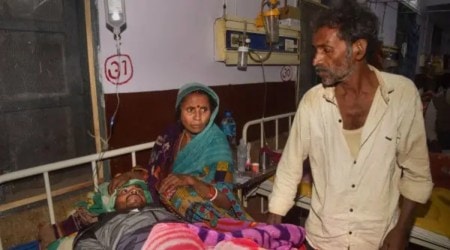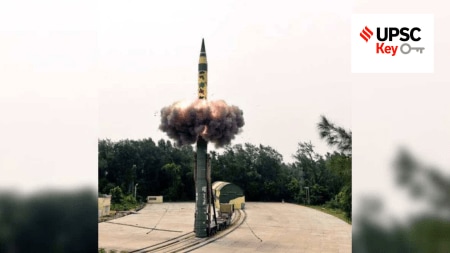Days after it became clear that Prime Minister Narendra Modi is not going to Russia for the annual summit this year, the two leaders discussed the situation in Ukraine and India-Russia bilateral ties in a telephone conversation on Friday. This is their fifth phone conversation this year since the Russian invasion of Ukraine.
While the Indian government’s statement said that Modi reiterated his call for “dialogue and diplomacy as the only way forward”, Kremlin’s statement did not make any mention of this, and instead said that “at the request of Narendra Modi, Vladimir Putin gave fundamental assessments of Russia’s line on the Ukrainian direction”. There was no mention of Modi’s now-famous statement to Putin in Samarkand that this is “not an era of war”.
There were divergences on the bilateral front as well. While India said the two leaders reviewed “several aspects of the bilateral relationship, including energy cooperation, trade and investments, defence and security cooperation, and other key areas”, the Russian statement did not mention “defence and security”, and said they discussed the prospects for “practical interaction” in “mutual investment, energy, agriculture, transport and logistics”.
Modi and Putin last met on the sidelines of the SCO Summit in Samarkand, Uzbekistan, on September 16 this year. At that time, Modi had told Putin that this is “not an era of war” — this was reflected in the G20’s Bali Declaration as well.
After Friday’s phone call, initiated by the Russian side, the Prime Minister’s Office in Delhi said: “Following up on their meeting in Samarkand on the sidelines of the SCO Summit, the two leaders reviewed several aspects of the bilateral relationship, including energy cooperation, trade and investments, defence & security cooperation, and other key areas… In the context of the ongoing conflict in Ukraine, (the) Prime Minister reiterated his call for dialogue and diplomacy as the only way forward.”
Behind the ties
India and Russia are managing a critical relationship at a challenging time. While Delhi banks on Moscow for supply of defence equipment, Moscow wants to sell energy to Delhi. That the two leaders have held five phone calls and met once in a difficult year is perceived as a pointer to their closeness, despite diplomatic challenges.
It said the Prime Minister “briefed” Putin on “India’s ongoing Presidency of the G20, highlighting its key priorities. He also looked forward to both countries working together during India’s Chairship of the Shanghai Cooperation Organisation.” The leaders agreed to remain in regular touch with each other, it said.
Kremlin’s statement said: “Having expressed satisfaction with the high level of bilateral cooperation developing on the principles of the Russian-Indian special and privileged strategic partnership, the leaders discussed in detail the prospects for practical interaction in such areas as mutual investment, energy, agriculture, transport and logistics.”
It said that “they also underscored the importance of continuing close coordination within the framework of international organisations, including in the context of the Indian presidency in the G20 and the Shanghai Cooperation Organisation.”
“At the request of Narendra Modi, Vladimir Putin gave fundamental assessments of Russia’s line on the Ukrainian direction,” it said, adding that “it was agreed to continue personal contacts.”
Last week, sources had said that Modi will not be travelling to Russia for the annual summit with Putin this year because of “scheduling issues”. This comes in the backdrop of the Russia-Ukraine conflict, in which India has sought to maintain a diplomatic balancing act between the two sides.
The annual summit between the Prime Minister of India and the President of the Russian Federation is the highest institutionalised dialogue mechanism in the strategic partnership between the two countries. So far, 21 annual summits have taken place, alternately in India and Russia. The last summit was held in New Delhi on December 6, 2021.
While India has not explicitly condemned the Russian invasion, it has called for an international probe into the Bucha massacre and expressed concern over nuclear threats issued by Russian leaders. At the UN Security Council, India has taken a nuanced position and has abstained from voting against Russia in several resolutions since February 24.









